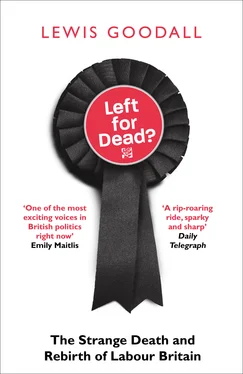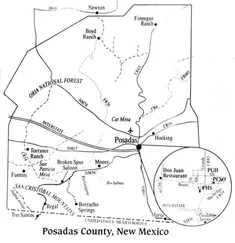Governments can no longer adopt stimulative policies that boost demand without risk of being punished by markets and higher interest rates. We must recognise that the UK is situated in the middle of the global market for capital, a market which is less subject to regulation today than for many decades. An expansionary fiscal or monetary policy that is at odds with other economies in Europe will not be sustained for very long … to that extent the room for manoeuvre of any government in Britain is already extremely circumscribed.5
Blair and Brown were obsessed with this idea; from their earliest days in office it’s clear now that they were genuinely quite scared of the market reaction against their government. Harriet Harman, in her memoir, recounts a story that is revealing of her bosses’ mindset. As the new Labour government’s social security secretary, she had been tasked with finding several billion pounds’ worth of cuts, so the government could stick to its election pledge of matching Conservative spending plans (something the man who drew them up, Ken Clarke as chancellor, later said he wouldn’t even have done had the Tories been re-elected). This entailed cutting child benefit for new claimants by £6 a week, a move deeply unpopular within the wider Labour Party. She recalls that she went to see Brown to spell out the problems and find a remedy:
But he said it was a manifesto commitment and that it would have to be carried out. If we didn’t, it would send a signal that we weren’t going to be financially prudent in the way we’d promised, it would cause instability in the money markets, there would be a loss of confidence, the government would fall, and I would be responsible for bringing down the first Labour government for eighteen years … Our government still felt fragile to me, I couldn’t do anything to threaten it.6
In retrospect, this seems quite incredible. The Labour administration was only a year old, elected with a stonking majority, the economy was booming, the markets were sanguine, the world economy was enjoying stability and growth, but a Labour chancellor and cabinet minister were worried that a £6 a week cut in benefits for lone parents might be the issue on which the government’s fortunes turned and which risked sending money markets into a spin. Perhaps Brown was over-egging the pudding to get his way, but what is striking reading the accounts of the time is just how commonplace fears like this were.
So in every direction by the 1990s, whether it was economic, social or ideological, the world seemed to have given way beneath social democracy’s feet. The postwar social democratic settlement seemed to be increasingly unobtainable because the pillars on which it had been constructed were vanishing. Callaghan could see what was happening better than anyone. When polls indicated he might be doing a bit better in the run-up to the 1979 election than he might have hoped, his aide, Bernard Donoghue, ventured to suggest he might win after all. ‘Bernard,’ the old warhorse replied, ‘I’m afraid to say I think there’s been a sea change and it is for Mrs Thatcher.’
It is sometimes spoken of as if Blair and Brown ‘abandoned’ socialism all on their own. That’s putting the cart before the horse. By the time New Labour came along the process of abandoning the trappings of the old Attlee settlement (which many people then took, and today continue to take, as the quintessential socialism) was already well underway. Because New Labour was not only an attempt to broaden the party’s sociological appeal: it was also an attempt to respond to a world where traditional methods of social democracy and socialism had been deemed bankrupt, in a metaphorical and a real sense; and many of the people who declared them so were – guess what – the social democratic politicians of the day.
And while the old leftist ways withered the right wasn’t sitting idly by, it was seizing the moment. The next decade and a half after the 1979 election transformed the political and social landscape in Britain, a more economically liberal, individualistic and enterprising culture was born and much of the time Labour was nowhere to be seen. Thatcher clocked up three general election victories and her successor, John Major, secured an unprecedented fourth in 1992.
In the meantime, a betrayal myth developed across some parts of the Labour Party that not only had Blair and Brown sold out but that Wilson and Callaghan had done so before them, that they had given in to international capital, and that if they had taken a properly left-wing approach to managing the economy, things might have been different and Thatcherism might have been resisted. We will never know for certain, but there are two important indicators that might suggest such revisionism is without much basis. The first is that the idea of betrayal might be more credible if similar phenomena were not taking place all across the West. Britain might have led the way, but the entire world was heading in a more ‘neoliberal’ direction. Whether it was Reaganomics in the United States or Rogernomics in New Zealand, ‡‡the picture was much the same everywhere. Even governments that were ostensibly left wing, like François Mitterrand’s in France, implemented more economically liberal policies once in office. The same phenomena that were running the left ragged in Britain were much the same elsewhere; the malaise and stagflation of the 1970s gripped the world; the corresponding decline in social democracy took hold partly as a result of changing technology and work patterns, and partly simply as a result of the final dissipation of some of the solidarity that had so characterised the immediate postwar world. There had, in other words, been an ideological changing of the guard around the world in favour of markets and their creative potential. Just as in the 1940s, the sweep of leftist governments across Europe led the historian A. J. P. Taylor to lament that belief in private enterprise seemed as hopeless as Jacobitism after 1688, so in the 1980s and 1990s did an untrammelled statism appear equally futile.
The left had to respond to these changes and more which were to come: the Soviet Union was collapsing, the Berlin Wall was coming down, and the ideological and geopolitical underpinning of much of twentieth-century leftist thinking was coming down with it. This was the era of the supposed ‘end of history’, as the academic Francis Fukuyama (sort of) said. Liberal market-based democracies had triumphed – it would have been bizarre if no reckoning had come and doubly bizarre if the response had been to double down with policies of nationalisation, higher taxation and stricter economic controls. Indeed, what is striking is that the left responded in a similar way across the West. Wherever you look, whether it’s Clinton’s Democrats or Schroeder’s SDP, there was a conspicuous move to the centre and an acceptance of market methods. New Labour might have embraced it with more brio than the others, but the pattern was the same. The left fundamentally changed because the world around it had done so too, including the attitudes and beliefs of the voters. Thus, even if the dreaded Blair and Brown hadn’t led Labour, even if New Labour had never been created, there is no doubt as to what the direction of the party in the late 1990s would have been because we have a control: the rest of the world. New Labour and Blairism were just a British version of an attempt across the West to respond to the profound crisis of social democracy that had taken place in the late 1970s and beyond.
Blair’s personal take on Labour’s lack of success in the 1980s and 1990s period was a simple one. He told a 1996 BBC documentary analysing the party’s 18 years in the wilderness: ‘The problem of the Labour Party of the seventies and eighties is not complex it’s simple. Society changed and the party didn’t. So you had a whole new generation of people with different aspirations and ambitions in a different kind of world. And we were still singing the same old song that we were singing in the forties and fifties.’7
Читать дальше












